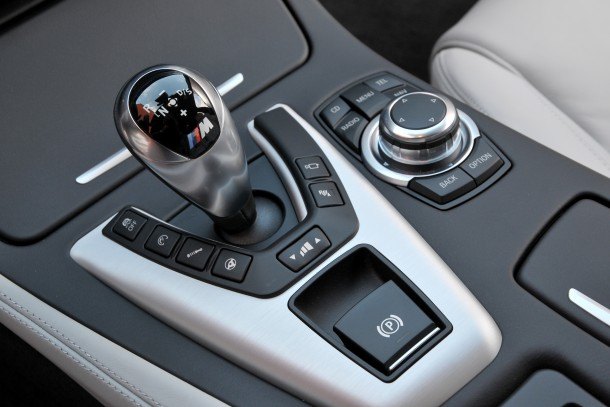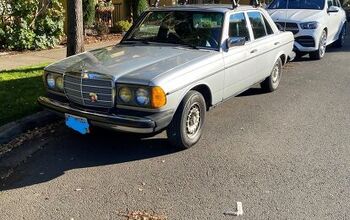BMW M Customers Surrender 'Save The Manuals' War

If the fight to save manuals is going to continue for much longer, it had better make gains in one of its historically important battlegrounds.
Only around 1 in 4 new BMW M3 models have a manual transmission, according to the manufacturer. That’s a steep drop from the reported 53 percent of buyers who opted to row their own in the last-generation M3 sedan — and the news for the manual M4 doesn’t get much better.
Buyers are opting for a manual transmission in the hardtop M4 only about 17 percent of the time, according to BMW. That’s down from 40 percent of the previous generation’s M3 Coupe buyers, according to reports.
BMW won’t comment specifically on the production numbers and the transmission splits, which have circulated on forums in two different forms. Last year, Road and Track reported that 45 percent of every last-generation M3 was a manual.
Thomas Plucinsky, who is manager of BMW’s corporate communications in the United States, said the production totals “sounded right,” but wouldn’t specify if the transmission splits were correct and added that the automaker wouldn’t correct reports — even if they were wrong.
A BMW spokesman added further that the overall mix for the U.S. for the last-generation M3 was closer to 25 or 30 percent.
The final production mix according to the outside reports is closer to 44 percent before production of the convertible M3 ended.
The purported numbers by other outlets, which come from two different sources, represent a substantial decline for one of the few remaining bastions of manual transmissions: European sportscars.
Earlier this month, head of BMW’s M division Frank van Meel said that the future for manual M cars from BMW “doesn’t look bright.”
“The DCT and auto ’boxes are faster and they have better fuel consumption,” he told Autocar.
In the United States, only roughly 1 in 10 M4 Convertibles are fitted with the six-speed manual gearboxes. Toward the end of its lifecycle, nearly half of the last generation of M3 Convertibles were fitted with manual transmissions.
“We have a very enthusiastic following for our brand, the reality of it is we make manual transmissions for this market. We see that our customers want manuals, we’re willing to fight for manuals for this market — as long as there’s a good business case we’ll make them,” Plucinsky said.
When asked if the number of manual transmissions sold today represented a good business case, Plucinsky added: “Today, yes it is.”

More by Aaron Cole
Latest Car Reviews
Read moreLatest Product Reviews
Read moreRecent Comments
- Lorenzo They won't be sold just in Beverly Hills - there's a Nieman-Marcus in nearly every big city. When they're finally junked, the transfer case will be first to be salvaged, since it'll be unused.
- Ltcmgm78 Just what we need to do: add more EVs that require a charging station! We own a Volt. We charge at home. We bought the Volt off-lease. We're retired and can do all our daily errands without burning any gasoline. For us this works, but we no longer have a work commute.
- Michael S6 Given the choice between the Hornet R/T and the Alfa, I'd pick an Uber.
- Michael S6 Nissan seems to be doing well at the low end of the market with their small cars and cuv. Competitiveness evaporates as you move up to larger size cars and suvs.
- Cprescott As long as they infest their products with CVT's, there is no reason to buy their products. Nissan's execution of CVT's is lackluster on a good day - not dependable and bad in experience of use. The brand has become like Mitsubishi - will sell to anyone with a pulse to get financed.


































Comments
Join the conversation
Google search found interesting article on transmissions in heavy-duty trucks. It said with highly experienced driver manuals worked great, good fuel economy and were "bullet proof". But newer drivers are less skilled and the auto works better with them. Apparently older drivers retiring (no surprise) and younger potential drivers less likely to be skilled in manual operation.
Manuals make a lot of sense in cruisers or cars with less than, say, 400 hp. How much driving involvement can you gain when you spend as much time shifting as you do accelerating with a 600hp supercar? That said, holy clickbait title. All that I got from this article was that the manual take rate on new BMWs is decreasing and will likely continue to decrease, not that BMW will stop offering manual M cars.